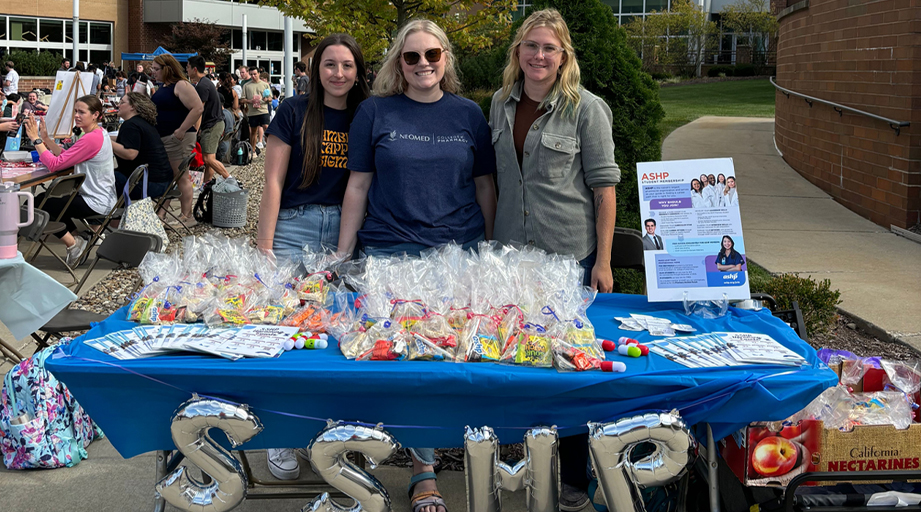
As states adopt programs that allow the medical use of cannabis products, pharmacists who haven’t yet considered the clinical implications of marijuana use should do so, says Colorado pharmacist Michael Barberio.
Medical cannabis “isn’t something that’s going away,” said Barberio, Clinical Pharmacy Specialist at Children’s Hospital Colorado in Aurora. “It has a lot of implications for drug therapy and how we manage drug therapy. And so we need to help patients and address potential safety issues.”
The National Conference of State Legislatures reported in late January that 34 states had approved a comprehensive medical marijuana program, although not all programs are operational yet.
Colorado passed a law in 2000 to permit the medical use of cannabis and later legalized limited recreational cannabis use in adults, with sales commencing in 2014. The state reported this year that total cannabis sales for medical and recreational use exceeded $6 billion since January 1, 2014.
More than 86,000 people had an active medical marijuana registration in Colorado this past February, according to the state’s public health department.
Barberio said he does encounter medical use of cannabis among the hospital’s pediatric patients.
“It’s relatively common, depending on the disease state—especially in oncology,” he said. “Parents see their kids suffering, and they see a lot of things out there on the internet and out in the community about what marijuana can do for them. And it interests them.”
Barberio said it’s important to consider the parents’ perspective and not make them feel defensive about considering or obtaining medical cannabis for their child.
“If we make them feel bad or belittle them, then they’ll just hide this from us,” he said. “How we, as a hospital, decided to address it is to have a constructive conversation with the families and not just come in and berate them about it.”
Jennifer Jorgensen, Pediatric Clinical Pharmacist at the hospital, said the key is to ask parents open-ended questions about medical cannabis, such as, “What do you perceive the benefit will be?”
She said these conversations are opportunities for clinicians to learn about parents’ sources of information about medical cannabis and to become familiar with those sources. And pharmacists, in turn, have the opportunity to raise the possibility that cannabis use could disrupt their child’s treatment regimen.
“Our recommendation could be to not use this [cannabis] product while your child is on a certain medication, because then we don’t know if your child’s failing their medication or if it’s because of an interaction with ... the medical marijuana,” Jorgensen said.
She cautioned that there’s little clinical evidence about how medical cannabis products interact with prescription medications. Research indicates that certain cannabis components may affect drug metabolism genes and P-glycoprotein function.
Barberio said he couldn’t recall any instances at the hospital of therapy failures caused by cannabis use. But he said there have been cases of children having cannabis-related adverse effects that needed to be addressed.
Jorgensen said cannabinoid hyperemesis syndrome is a fairly common adverse reaction to medical cannabis.
She said that when parents do choose to obtain medical cannabis, “we encourage them to follow the state’s legal pathway by getting a medical marijuana card.”
Colorado residents must have a qualifying medical condition—cancer, glaucoma, HIV or AIDS, cachexia, persistent muscle spasms, seizures, severe nausea, severe pain, or posttraumatic stress disorder—to qualify for a medical marijuana card.
One thing Colorado pharmacists can’t do counsel patients about how to use medical cannabis, because federal law prohibits such use.
“We’re kind of in a legal gray area,” Barberio said. “We can’t tell them about dosing, we can’t tell them which product to use.”
The hospital’s website states that clinicians at the hospital don’t prescribe or recommend medical cannabis outside of clinical trials.
According to the clinicaltrials.gov website, Children’s Hospital Colorado recently completed but hasn’t yet reported results from a study evaluating the pharmacokinetics of antiepileptic drugs and cannabidiol, tetrahydrocannabinol, and their metabolites in children with epilepsy who self-medicate with cannabidiol products.
The hospital is also evaluating quality-of-life characteristics in children with central nervous system tumors who self-medicate with marijuana-derived products and examining laboratory values, developmental measures, seizure diaries, and electroencephalographic recordings in children with refractory epilepsy who use medical marijuana products.
FDA last year approved cannabidiol oral solution for the treatment of seizures associated with two rare, severe forms of epilepsy that usually first manifest in young children. This was the agency’s first-ever approval of a drug product purified from the Cannabis sativa, or marijuana, plant.
[This news story appears in the July 1, 2019, issue of AJHP.]








